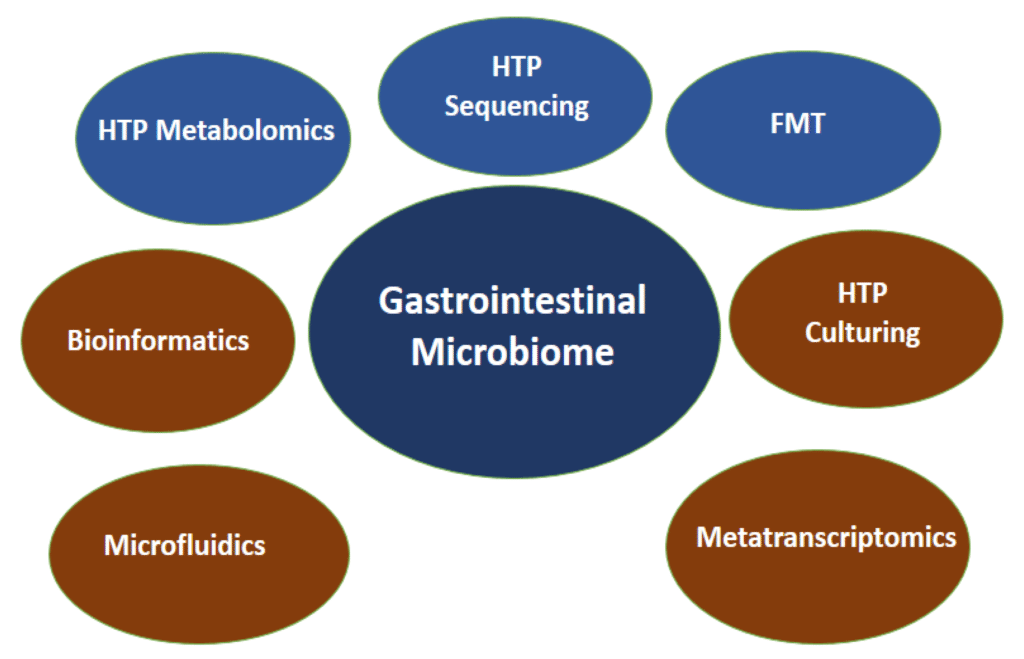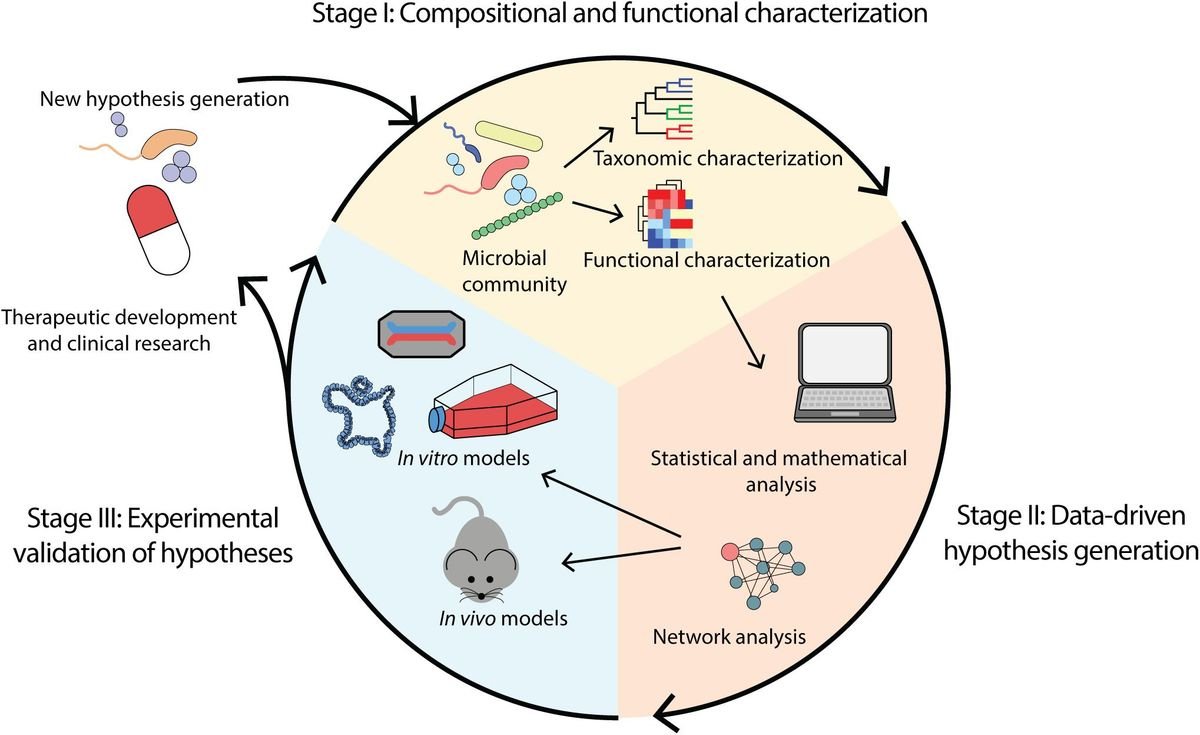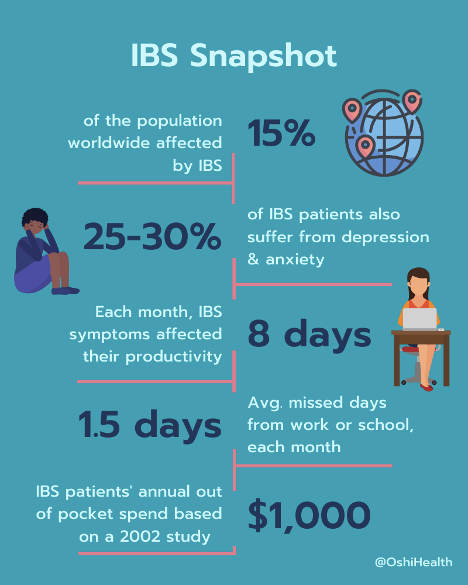Concise Summary
Emerging technologies in gut microbiome research are revolutionizing digestive health in the United States. Innovations like metagenomic sequencing, AI-driven microbiome analysis, wearable gut sensors, and personalized nutrition tools are enabling precision therapies, targeted probiotics, and real-time monitoring. These breakthroughs empower Americans to optimize gut health, reduce digestive disorders, and improve immunity, while shaping the future of preventive medicine.
Introduction: Why Gut Microbiome Technology Matters
The gut microbiome, home to trillions of microorganisms, influences digestion, immunity, and mental health. In the United States, digestive disorders affect millions of people—nearly 25–45 million Americans suffer from IBS alone (International Foundation for Gastrointestinal Disorders, 2023).
Rising awareness of the gut’s role in overall wellness has fueled investment in emerging technologies that provide insights previously impossible.
From advanced DNA sequencing to AI-powered microbiome profiling and ingestible biosensors, these innovations are reshaping research, diagnostics, and personalized nutrition. For Americans, this means the ability to understand, monitor, and actively manage their gut health with precision.

Key Emerging Technologies in Gut Microbiome Research
1. Metagenomic Sequencing & Multi-Omics Analysis
Metagenomic sequencing identifies all DNA within gut microbes, mapping bacterial diversity and their functional roles. Multi-omics approaches integrate genomics, metabolomics, and proteomics to provide a complete picture of the gut ecosystem.
- Impact: Researchers can identify microbial strains associated with obesity, diabetes, and mental health disorders.
- Real-life Example: U.S.-based companies like Viome and DayTwo provide at-home stool testing kits that analyze microbiome profiles and recommend personalized diets.
Consumer Insight: A Boston professional used Viome’s test and altered her diet to reduce foods promoting harmful bacteria, resulting in improved digestion and reduced bloating within weeks.
2. AI and Machine Learning in Microbiome Research
Artificial intelligence analyzes massive datasets to detect patterns in gut flora that correlate with health outcomes. AI models can predict:
- How individuals respond to probiotics or dietary interventions
- Risk factors for digestive or metabolic disorders
- Optimal personalized synbiotic combinations
Example: IBM Research and MIT are developing AI platforms that simulate gut-immune interactions, helping doctors predict patient responses to microbiome-targeted therapies.
Practical Takeaway: AI accelerates the translation of microbiome research into real-world, personalized solutions, reducing guesswork for consumers and clinicians alike.
3. Personalized Nutrition & Microbiome-Based Diets
Americans are increasingly adopting diet plans based on their microbiome profile. Companies use stool samples to recommend foods that improve microbial balance, optimize digestion, and reduce inflammation.
- Example: A tech employee in Austin reported fewer IBS symptoms after following a microbiome-based diet recommended by DayTwo.
- Consumer Tip: Personalized nutrition is most effective when paired with whole foods rich in prebiotics and probiotics.
4. Smart Wearables & Ingestible Sensors
Innovative wearable and ingestible technologies now allow real-time monitoring of gut activity, including:
- Gut pH and acidity
- Gas production
- Motility and digestion rates
Example: MIT’s ingestible sensor pill tracks microbiome activity and could alert patients to digestive disturbances in real time. For U.S. patients with chronic GI disorders, this technology may soon offer proactive symptom management.
5. Next-Generation Synbiotic Development
Advanced fermentation technologies are enabling targeted synbiotics, designed to deliver probiotics alongside prebiotics for maximum survival and effectiveness.
- Applications: Antibiotic recovery, IBD management, food intolerance support
- Market Insight: Synbiotic supplements in the U.S. are projected to grow rapidly, with Seed and Align leading innovation.
Consumer Search Questions
1. How does microbiome technology improve gut health?
Emerging technologies provide insights into gut flora composition, enabling personalized dietary and probiotic strategies. This accelerates symptom relief, enhances immunity, and supports long-term gut balance.
2. Can I test my microbiome at home?
Yes. Home kits from Viome and DayTwo allow Americans to analyze their gut bacteria and receive personalized nutrition advice. While not diagnostic, these tests help users make informed lifestyle changes.
3. Will AI create personalized probiotics?
AI can identify which bacterial strains suit an individual’s gut, paving the way for precision probiotics tailored for optimal digestion and health outcomes.
4. Are ingestible sensors safe for consumers?
Current research shows these sensors are safe for most adults. They are designed to pass naturally through the digestive tract while transmitting real-time gut data. Consultation with healthcare providers is recommended for individuals with GI conditions.
Practical Applications for Americans
- Personalized nutrition apps linked to microbiome tests
- AI-driven dietary recommendations for optimized probiotic and prebiotic intake
- Wearable gut sensors for real-time digestive tracking (emerging tech)
- Telehealth integration using microbiome data for tailored health plans
Challenges in Gut Microbiome Technologies
- High cost: Advanced testing and wearables can range from $100–$400 per test
- Regulatory gaps: FDA oversight is limited for consumer microbiome tests
- Data privacy concerns: Personal microbial data requires secure handling
- Scientific complexity: Not all detected bacteria are directly linked to health outcomes
Future Outlook: Microbiome Research by 2030
- Precision medicine: AI and microbiome data will guide targeted therapies
- Consumer adoption: At-home tests and apps will become mainstream
- Personalized probiotics & synbiotics: Tailored gut interventions for individuals
- Integration with wearables: Continuous gut health monitoring for preventive care
Global microbiome research is expected to surpass $1.5 billion by 2028, with the U.S. leading innovation in consumer and clinical applications (Fortune Business Insights, 2023).
Top 10 FAQs
1. Is microbiome testing worth it?
Gut microbiome testing provides insights into digestive balance and personalized nutrition. While not a substitute for medical diagnostics, many Americans adjust their diets and improve gut health based on these results. Its value depends on personal health goals and willingness to act on recommendations.
2. Can technology cure gut disorders?
Technology itself does not cure conditions like IBS or Crohn’s disease but provides actionable guidance. AI, sequencing, and synbiotic engineering allow clinicians to develop targeted interventions that improve outcomes alongside conventional care.
3. Are home microbiome tests accurate?
At-home tests provide reliable bacterial composition data but may not capture full gut functionality. They are best used for dietary guidance and lifestyle adjustments, not medical diagnosis. Individuals with serious symptoms should consult healthcare providers.
4. How does AI enhance gut research?
AI analyzes large datasets to identify correlations between microbial patterns and health outcomes. This enables precision probiotics, optimized diets, and prediction of disease risks, helping Americans make data-driven gut health choices.
5. Can wearable sensors improve daily gut health?
Yes. Sensors monitor gut pH, gas levels, and motility, enabling early detection of digestive issues. Future U.S. devices may integrate with apps for proactive gut management and personalized wellness tracking.
6. Are personalized diets effective for Americans?
Personalized diets based on microbiome data reduce bloating, improve digestion, and enhance nutrient absorption. Consumers report higher compliance when recommendations match individual gut profiles and lifestyle.
7. What role do synbiotics play in research?
Synbiotics combine probiotics and prebiotics for improved gut colonization. They are especially useful for chronic GI issues, antibiotic recovery, and promoting microbial diversity, with growing adoption in the U.S. market.
8. Are there risks in using gut microbiome technologies?
Risks are minimal for healthy adults but include privacy concerns, misinterpretation of results, or over-reliance on consumer tests. Gradual adoption and professional consultation are recommended.
9. Will microbiome insights affect mental health?
Yes. The gut-brain axis links microbiome composition with mood, stress, and cognitive function. Personalized interventions may support mental well-being alongside digestive health.
10. What’s the future of gut health in the U.S.?
By 2030, Americans will access integrated microbiome diagnostics, AI-guided diet plans, precision probiotics, and real-time monitoring, shifting gut health from reactive care to proactive wellness.
Key Takeaways for Americans
- Emerging technologies provide unprecedented insights into gut health.
- AI, sequencing, wearables, and synbiotics allow personalized interventions.
- Home testing empowers consumers to take control of digestion and immunity.
- The U.S. market is poised for growth in precision nutrition and microbiome-based health solutions.
Conclusion: From Research to Everyday Gut Health
Emerging technologies are bridging science and consumer health in unprecedented ways. Americans can now leverage microbiome insights to optimize diet, manage digestive disorders, and improve overall wellness. As AI, sequencing, and wearables evolve, personalized gut health will become an integral part of daily life, making digestive well-being a proactive lifestyle choice rather than a reactive intervention.
Read This : https://myhealthhacks.us/digestive-gut-health-101-nutrition-microbiome-and-lifestyle-for-better-health/




